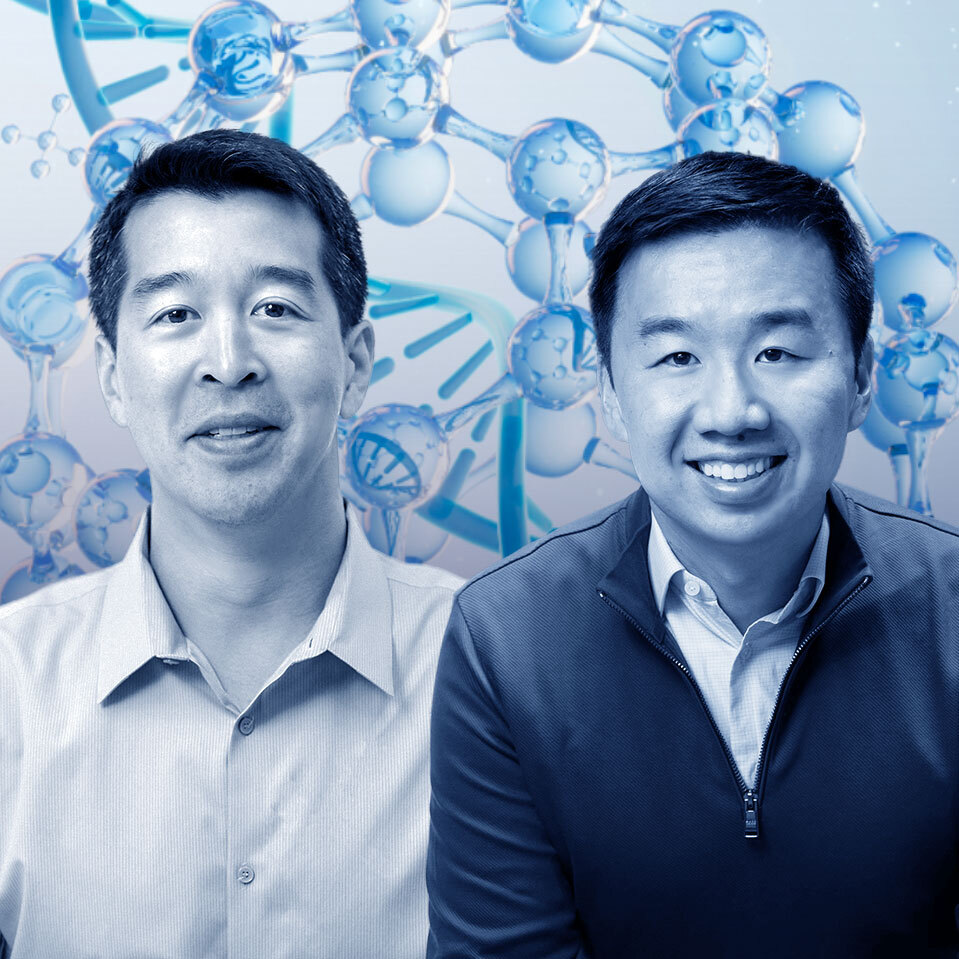At Menlo, we believe the pace of innovation in new medicines will continue to accelerate, powered by the combination of advances in biology, advances in information technology, and even the lasting implications of the global pandemic. Menlo has a long history of successful therapeutics investing, including starting and incubating Gilead, long before biotech incubations became in vogue. Over the past few years, we have developed a strategy to differentiate by combining some of the best of the very different worlds of biotech and tech investing. We do not aspire to be a traditional biotech investor. Nor are we technologists dabbling in bio. We believe in a new generation of companies, and we also believe that to change the world for the better, you must understand the status quo.

When we consider new therapeutics investments, we typically focus on 5 Ps. This framework has helped guide our recent investments, including Recursion Pharmaceuticals, Encoded Therapeutics, Pliant Therapeutics (NASDAQ: PLRX), Genesis Therapeutics, Scribe Therapeutics, Senti Biosciences, Epiodyne, Anagenex, and others to be announced.
Program: Lead Program Takes Company From Zero to One
Traditionally, the lead program drove the vast majority of a biotech’s value. While this is changing (see below), we believe the lead program remains critical, both in terms of traditional metrics of value (sales potential and unmet medical need) and to demonstrate that the team can deliver a drug. As the saying goes, there’s a vast difference between zero and one. A strong lead program makes a valuable company. At Menlo, we invest primarily in discovery and pre-clinical platform companies, but they need to have a clear lead program with some rationale for better-than-average clinical risk or time.
We have supported Pliant Therapeutics since Series B. Pliant’s lead program is in IPF, a severe lung fibrosis disease with no good treatments. Pliant’s program, now in Phase II clinical studies, has always impressed us through the quality of their biological models and their experienced team.
We invested in Epiodyne at their Series A on the basis of a tunable, structure-based approach to designing “non-opioid” modulators of the opioid receptor that may, for instance, treat pain or opioid use disorder without causing likability or respiratory suppression.The company’s disciplined approach has enabled enough patient, capital efficient chemistry to meet key product requirements and significant nondilutive funding to support preclinical and clinical studies in the context of the ongoing opioid epidemic.
Portfolio & Platform: Balance Between Technologists and Biologists
The allure of a platform company is that a novel technology might enable not just a single novel drug, but a whole portfolio. Some tech-oriented investors focus primarily on the platform technology. We look for companies who are approximately in balance (ideally 50/50) between virtual lab technologists (such as AI) and wet lab biologists or chemists and have senior leaders with both backgrounds. We think this predicts better management perspective and resource allocation that uses technological power to process 10x+ data and generate 10x+ hypotheses with biological judgment and iteration to find true signal among the many false positives generated by any data-intensive approach.
From our first meetings with Recursion, it was clear both that their computer vision screening platform could enable an incredibly broad portfolio and that they were also committed to building deep biology depth to support these programs, which has paid off in multiple clinical programs and a powerful pipeline.
The power of CRISPR to revolutionize gene editing is uncontroversial, but we believe CRISPR 2.0 will be needed to reach its potential for in vivo therapeutics. We recently invested Scribe Therapeutics because we believe they have successfully engineered their CRISPR CasXE platform for the right combination of efficacy, size, manufacturability and IP for many applications where DNA editing could be used.
Partnerships: Better Platforms Enable More Partnerships
One way we judge a biotech platform is whether the pipeline of assets diminishes in quality — do you have a one-hit-wonder, or is success sustainable? If the first asset is the best asset, it could be a great drug, but it is probably not the best fit for our investment strategy. The best platforms can efficiently generate more high quality assets than any single startup can pursue, no matter how much money we raise. We support strategies to establish at least one and sometimes many pharma partnerships: quality partnerships with upfront payments and milestones make dilution more efficient for everyone, accelerate and force-multiply internal programs, and streamline future fundraising.
As Pliant grew through its journey to IPO, we saw the Novartis partnership in NASH as a major catalyst, in financings, non-dilutive capital, and even now with the recent milestone of end of Phase I and transfer of the asset to Novartis. The Pliant team’s patience to find the right partner and right deal took a little longer than we all hoped, but ended in a great result.
Genesis Therapeutics is still early in its lifecycle, given that we invested relatively recently in their Series A, but part of our investment thesis was based on their work with multiple pharma, even in the seed stage, including a collaboration with Genentech where we could favorably benchmark the partnership including level of upfront investment, breadth, and downstream economics vs. other similar stage companies.
People: We Fund Entrepreneurs
Our investment thesis at Menlo starts and ends with people. Much of biotech VC has shifted in recent years to emphasize internal incubation, but at Menlo, we continue to look for outstanding founder-led teams. The complexity of drug development requires experience in the right roles, but we will (and in fact like to) invest in entrepreneurs, irrespective of experience, who bring the vision, communication, and execution to turn scientific breakthroughs into great companies.
Some of our amazing founders started as young scientists, like Chris Gibson at Recursion, Ben Oakes at Scribe, Kartik Ramamoorthi & Stephanie Tagliatella at Encoded, Evan Feinberg at Genesis, and Tim Lu at Senti. Each of their companies is frankly hard to separate from the drive and spirit of their founders. But each of these have also built strong, experienced teams with functional leadership who have “been there, done that” before.
Menlo and Therapeutics
At Menlo, we are proud to build on our long history of successful therapeutic investments with a strong and growing portfolio targeting the nexus of biology and technology. We are thrilled to have the opportunity to back some amazing teams, and we continue to actively expand our investments in the sector, including hiring additional investors. We look forward to meeting even more founders who share our interests!
Greg is a partner at Menlo Ventures, where he invests in teams trying to solve major problems in life science and healthcare, with a special interest in novel therapeutic platforms, digital health, and transformative technologies. Since joining in 2017, Greg has led Menlo investments including Cartwheel, Clear Labs, Curie, Delfi,…







